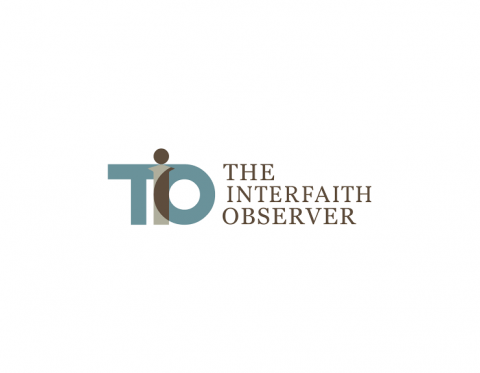Of all human aspirations, the goal of peace may be the most vexing. Most of us want peace (at home, at work, in our communities, large and small). And peace is surely achieved sometimes, ranging from resolving one’s internal conflicts to signing peace treaties between nations and living up to them.
But we all know the human record is mixed at best. In this month’s Interfaith News aggregation, stories of conflict and violence eclipse stories of reconciliation. The tools of violence, ranging from video games to rocket drones, continue to multiply and become more powerful around the world. And the conviction that ‘too much money is never enough for me’ corrupts our institutions and robs people, rich and poor, of the peace they might have had.
Last week (besides becoming Time magazine’s Man-of-the-Year), Pope Francis made his first major address on peacebuilding, focusing in particular on economic disparity and injustice as root causes of so much violence and conflict in the world. Titled “Fraternity, the Foundation and Pathway to Peace,” Reuters’report gets to the heart of it:
Pope Francis said in the first peace message of his pontificate that huge salaries and bonuses are symptoms of an economy based on greed and inequality and called again for nations to narrow the wealth gap… “The grave financial and economic crises of the present time ... have pushed man to seek satisfaction, happiness and security in consumption and earnings out of all proportion to the principles of a sound economy,” he said… “The succession of economic crises should lead to a timely rethinking of our models of economic development and to a change in lifestyles.”
The very good news in this gloomy context is that tens of thousands of people are dedicating themselves to rigorous peacebuilding in its many, many arenas, often with remarkable results. At the Kroc Institute for International Peace Studies at Notre Dame University, the Peace Accords Matrix project is creating “a unique source of qualitative and quantitative data on peace agreements that have been signed since 1989… The database allows practitioners, researchers, and policymakers to understand peace accords by providing comparative information on accords and their implementation.”
The peacemaking stories in TIO this month suggest that however bad the news some days, our hope for peace is achievable. Is happening. The global peacebuilding community is full of brilliant people, bright, educated, intuitive, on-the-ground peacebuilders, and boy do they have their work cut out for them. A few of their best stories, ideas, programs, and resources get shared this month in these pages.
Peace for Serious Students and Activists
An increasing number of academic environments offer cutting-edge learning opportunities for both undergraduate and graduate programs. TheKroc Institute for International Peace Studies, mentioned above, is one of the best.
While you’re at it, check out the faculty, focus, and goals at some of the excellent alternatives, particularly from an interfaith perspective. ThePeacebuilding and Development Institute at American University comes to mind immediately, along with the Center for Justice and Peacemaking at Eastern Mennonite University.
Indeed, there are many options. Craig Zelizer, on behalf of PCDN (peace & collaborative development network) has published a list of 17 doctoral programs in peace studies and conflict resolution/transformation around the world, including links to each of them.
Two other peacebuilding efforts deserve mention. The U.S. Institute of Peace is not a religious organization, though it is thoroughly interreligious. A part of USIP’s considerable website is devoted to Religion and Peacemaking.
Finally, members of a peacebuilding organization may want to check out the Alliance for Peacebuilding (AfP). AfP is “a global membership association of more than seventy peacebuilding organizations, 1,000 professionals, and a network of more than 15,000 people developing processes for change in the most complex, chaotic conflict environments around the world… AfP amplifies the strengths of its members and works collaboratively on issues that are too large for any one organization to tackle by itself.”
If you are totally dedicated to peacebuilding, there is a huge community that will greet you, who have begun the work and have been waiting for you.
- Paul Chaffee
“And with your Spirit” by Clare Tabera – From Religion News Service’s Pope Francis art competition
